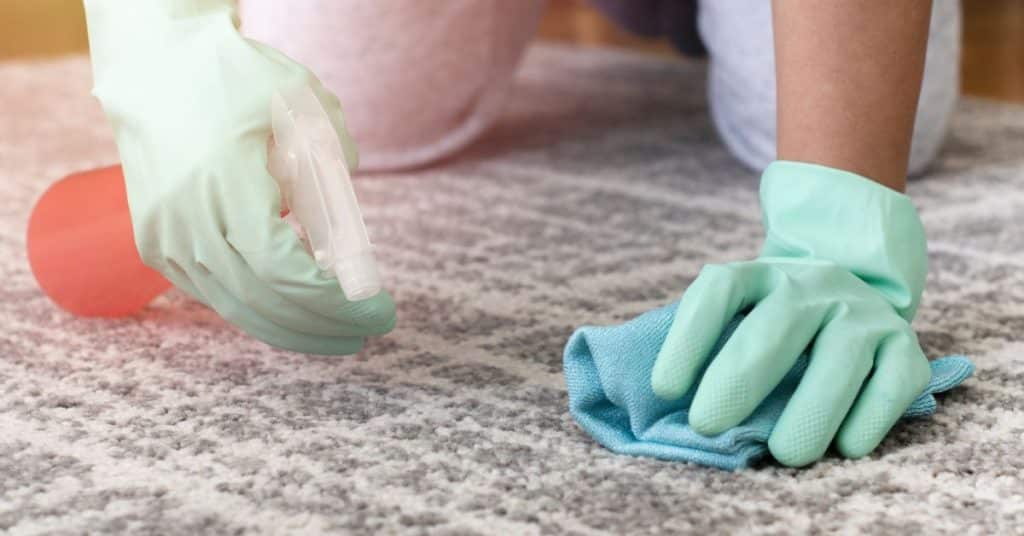Stains are an inevitable part of life. Whether it’s a splash of red wine on your favorite shirt, a coffee spill on the carpet, or a mysterious mark on the couch, tough stains can be a real headache. But fear not! With the right techniques and a bit of elbow grease, you can tackle even the most stubborn stains. Let’s dive into the world of stain removal and explore how deep cleaning and the expertise of cleaning professionals can make all the difference.

Understanding Stains: The First Step to Success
Before jumping into action, it’s essential to understand the nature of the stain you’re dealing with. Stains can be broadly categorized into three types:
- Water-Based Stains: These include coffee, tea, juice, and wine. They are generally easier to remove if treated promptly.
- Oil-Based Stains: Think of grease, butter, and salad dressing. These require a bit more effort and specific cleaning agents.
- Protein-Based Stains: Blood, sweat, and dairy fall into this category. They can be tricky, especially if they set in.
Identifying the type of stain is crucial because it determines the cleaning method you’ll use.
Quick Tips for Immediate Action
When a stain occurs, time is of the essence. Here are some quick tips to minimize damage:
- Blot, Don’t Rub: Use a clean cloth to blot the stain gently. Rubbing can spread the stain and damage the fabric.
- Cold Water Rinse: For most stains, rinsing with cold water can help dilute and lift the stain. Avoid hot water, as it can set certain stains.
- Test Before You Treat: Always test your cleaning solution on a hidden area to ensure it doesn’t damage the fabric or surface.
DIY Stain Removal Techniques
Water-Based Stains
For water-based stains like coffee or wine, a mixture of white vinegar and dish soap can work wonders. Mix one tablespoon of each with two cups of warm water. Apply the solution to the stain with a clean cloth, blotting gently until the stain lifts.
Oil-Based Stains
Oil-based stains require a bit more finesse. Start by sprinkling baking soda or cornstarch on the stain to absorb excess oil. Let it sit for 15 minutes, then vacuum it up. Follow up with a dish soap solution to break down the remaining oil.
Protein-Based Stains
For protein-based stains, such as blood, use a mixture of cold water and salt. Apply the solution to the stain, let it sit for 10 minutes, then rinse with cold water. Avoid using hot water, as it can set the stain.
When to Call in the Cleaning Professionals
While DIY methods can be effective, some stains require the expertise of cleaning professionals. If you’ve tried everything and the stain persists, it might be time to call in the experts. Professional cleaners have access to industrial-grade cleaning solutions and equipment that can tackle even the toughest stains. Plus, they can perform a deep cleaning of your entire space, ensuring that every nook and cranny is spotless.
The Benefits of Deep Cleaning
Deep cleaning goes beyond surface-level tidying. It involves a thorough cleaning of your home, targeting areas that are often overlooked. This process not only removes tough stains but also eliminates allergens, bacteria, and odors, leaving your home fresh and healthy. Regular deep cleaning can extend the life of your furniture and carpets, making it a worthwhile investment.
Conclusion: Embrace the Challenge
Stains may be a part of life, but they don’t have to be a permanent fixture in your home. With the right approach and a little help from cleaning professionals, you can conquer even the toughest stains. Remember, the key is to act quickly, use the right techniques, and know when to call in the experts. Embrace the challenge, and enjoy the satisfaction of a spotless home!
About The Author
Sparkling Queens is located in Richmond Hill and services Richmond Hill, Savannah, Georgetown, Pembroke, Rincon, Springfield, and surrounding areas. We offer recurring cleaning services, deep cleaning services, move in/out cleaning services, as well as office cleaning services.
Quote Form
"*" indicates required fields
← Next Blog Post: The No-Stress Approach to a Super Clean Kitchen

